This article was co-authored by wikiHow staff writer, Ali Garbacz. Our trained team of editors and researchers validate articles for accuracy and comprehensiveness.
wikiHow’s Content Management Team carefully monitors the work from our editorial staff to ensure that each article meets our high quality standards.
There are 19 references cited in this article, which can be found at the bottom of the page.
Learn more...
Are you an entrepreneur looking to start a business of your own? Do you have some business experience and need a new challenge? Then maybe a venture into the business of staffing agencies will be your next step. A staffing agency is a vital service used by job-seekers and employers alike, and it’s a great opportunity for those with an entrepreneurial mindset to step into the small business world. We’re here to walk you through the steps to starting your own staffing agency so you can hit the ground running and start changing people’s lives with your service. You’ll be in business in no time!
Things You Should Know
- Draft a business plan early on detailing your agency’s niche, predicted costs, legal structure, and location.
- Look into your state’s specific laws regarding registering your business, applying for taxes, and purchasing required insurance.
- Staff your agency with professionals who will bring their own ideas and perspectives to the business and create value.
- Advertise your staffing agency by creating a website and having a consistent and solid social media presence.
Steps
Establishing Your Agency
-
1Choose your specific industry niche. While recruiting from a ton of different businesses and industries will certainly keep your flow of clients coming in, picking a specific sector or “niche” to focus on is key to getting a more professional reputation. Your client pool will be more limited, but you’ll be able to show them that your agency is an expert on the industry they’re looking at. It’s also a way to limit competition with other staffing agencies near you.[1]
- Keep your location in mind, as the specific businesses and industries that have the most hiring demand will differ by location.
- Go for industries that are predicted to grow in the future. This will help ensure that you’ll continue to have clients coming to your agency.
- Find out how much certain industries are charging for their services. Some industries by nature pay better than others, so choose an industry that both aligns with your strengths and yields higher profits.
- Some example niches include: cyber security, FinTech, digital marketing, nursing, data scientists in the HR industry, airline flight attendants, and IoT staffing.
-
2Research competing agencies within your niche. Do a quick Google search or use a site such as Yelp to find other staffing agencies that are operating in your area. Then check out any website or social media pages they may have and look into how they’re marketing their services. Who are their target clients? What are they doing to set themselves apart from other agencies? Use this as a foundation to begin making your own business plan that will set you apart.[2]Advertisement
-
3Draft a business plan. Your business plan is the blueprint for your staffing agency and the roadmap you’ll follow when it comes to actually setting everything up and running your business. Each business will write their business plan differently, but a traditional business plan format will include these key components:[3]
- Executive summary: This says what your business is and why it will be successful. This includes details such as your mission statement and information about leadership positions.
- Company description: Here, you’ll go into detail about what problems your business will solve and who you’ll be serving. This is the place to highlight what makes your company stand out.
- Market analysis: This is the research you’ve done into your targeted market. What do successful competitors do? Why does it work? Can you do it better?
- Organization and management: Explain how your business will be run and what its legal structure is.
- Service line: Tell readers what service you're offering and what kind of benefits it will ensure.
- Marketing and sales: Lay out your marketing strategy for how you’ll draw in and retain clients.
- Funding request: If you’re in need of funding, this is where you’ll outline your funding requirements and what the funding will specifically be used for.
- Financial projections: This will supplement your funding request. You’re convincing the reader that your business will be stable and financially successful.
- Appendix: This is where supporting documents and other requested materials will go.
-
4Lay out the predicted costs of starting your staffing agency. Start by adding up well-defined costs like computers, rental fees, and registration fees. Research what similar companies pay for website development, employee salaries, and advertising to estimate less concrete costs. Talk to owners of similar staffing agencies for their advice and insight, and consider these additional expenses:[4]
- Office space / rent
- Equipment and supplies
- Insurance
- Legal set-up expenses (entity foundation, contracts. etc.)
- Website development
- Software
- Employee and freelancer costs
- Advertising and marketing
- The total cost of starting your business depends on how much you do yourself, how many tasks you outsource, and personal decisions about office space and advertising.
-
5Set a price for your services. Typically, staffing agencies will charge 20% to 75% of the salary of a temporary employee and between 10% and 20% of a permanent employee’s salary. Compare your prices to competing agencies and look at industry averages to choose a price that will be competitive.[5]
- For recruitment costs, your agency can use one of two methods. The retainer method is used when you’re working closely with a business for a long period of time and charge them for your services for as long as they use your agency.
- The percentage method means you’ll take a certain percentage (usually 15% to 25%) of the employee’s salary as the charge for recruitment.
-
6Choose an LLC or incorporation. When creating a staffing agency, two common routes people usually go is to form a limited liability company (LLC) or incorporate their business. When choosing which structure you’d like your staffing agency to follow, consider things such as how business taxes will be paid and if you’ll have any personal liability for your business.[6]
- An LLC will protect the business owner’s personal assets from business liability in the case of bankruptcy or a lawsuit. Profits and losses can be passed through personal income, so your income won’t be subject to corporate taxes.
- A corporation is a business entity separate from the individual who created it. The company is responsible for paying back debts and paying taxes on its earnings.
-
7Choose a location for your business. If you’re planning on having your employee’s come in for work, secure office space to accommodate them. This will also be a space for clients to come in. Do market research to see what areas your clients are likely to come from and place your business in a strategic location that will have a far enough reach to maximize your client intake.[7]
- If you’re purchasing empty office space, doing a huge renovation on a space, or building your own office, you’ll need a certificate of occupancy (CO). Check your local government’s website to see what documents you’ll need to get your CO.[8]
- Certain costs for your business can vary by state or region, such as minimum wage laws, property values, and business insurance rates. Taxes also vary by state, county, and city.[9]
Registering Your Business
-
1Name your business. The name of your agency is a significant part of your identity as a business, so come up something that’s a good blend of unique and professional. When coming up with a name, check the following places to make sure it’s not already taken:[10]
- Your state’s business records
- Federal and state trademark records
- Social media platforms
- The web (for domain availability)
-
2Register your staffing agency with local and national governments. The type of legal structure you chose for your staffing agency, as well as your location, will determine how exactly you register your business. For most small businesses, this means simply registering your business’s name with state and local governments. Not registering your business could mean you’re missing out on personal liability protection, legal benefits, and tax benefits.[11]
- Register with the state where you’re conducting business. Some states let you do this online while others have physical documents you need to turn in. Most states require you to register with the Secretary of State’s office, a Business Bureau, or a Business Agency.
- Upon registration, have prepared your business name, the business location, ownership, management, or directors, registered agent information, and the number and value of shares if you’re a corporation. The fee to register your business won’t usually go above $300.
- If your agency is an LLC or a corporation, locate a registered agent in your state before you file. This registered agent will receive official papers and legal documents on your company’s behalf.
-
3Register your staffing agency for taxes. If you’ve registered your staffing agency as an LLC or a corporation, register with the IRS to get an Employer Identification Number (EIN). This is also known as a Federal Tax Identification Number and is going to be used to identify your business entity. Apply online to get your number. The taxes you should be prepared to pay include:[12]
- Income tax
- Estimated tax
- Self-employment tax (if you’ve registered as an LLC)
- Employment tax
-
4Purchase insurance. You’re going to need sound business insurance policies to protect yourself and your business from liability and adhere to the law. You’ll be required to have commercial insurance and general liability insurance. The federal government also requires businesses that have employees to have workers’ compensation, unemployment, and disability insurance. Required insurances will also vary by state.[13]
- When deciding what types of insurance to buy, assess the various risks that may affect your agency, such as natural disasters in the case you have a physical office.
- Find a reputable and licensed agent to help you go through insurance plans and decide on one that’s right for you and your agency.
- Reassess your liabilities every year and make changes to your insurance plan when they’re needed.
-
5Look into local and national business laws. The laws that govern a staffing agency will vary by state. For example, the U.S. Equal Employment Opportunity Commision has laws regarding equal employment opportunity for staffing agencies which prohibits employment agencies from discriminating against its own employees as well as in its referral practices. Even if your agency isn’t specifically covered under this organization, similar laws may exist in your state or local government.[14]
- Visit the U.S. Department of Labor’s site for resources on state-specific laws and regulations.
-
6Set up a business bank account. As soon as you start earning money and using money to pay for expenses, then it’s time to set up a bank account for your business. They offer you protection by keeping personal finances separate from your business, they have a much more professional feel to them when customers make payments, and they help your business build up credit for future big investments or in the case of an emergency.[15]
- You’ll need your EIN, your agency’s formation documents, ownership agreements, and business license to open this bank account.
Growing Your Staffing Agency
-
1Hire great employees for your agency. Start by deciding what types of positions you’d like to fill, whether that be full-time, part-time, or temporary. Then go over your budget to see if you’re able to cover not only their salaries, but also benefits and payroll taxes. Finally, find people whose values and visions align with your own, and who will add value to your agency in their own unique way.[16]
- Along with technical skills, give equal consideration to a potential candidate’s soft skills. Things like interpersonal communication, critical thinking, and leadership will benefit your agency greatly and help you rise above competitors.
- Some key positions every startup owner should look to fill include: a CEO and COO, chief marketing officer, chief financial officer, business development manager, customer service representative, and communications manager.
-
2Equip your agency with software that will improve productivity. Choosing the right software for your business will make the workflow much smoother and make it easier for you to find clients. There are many types of software out there that offer a variety of features, so consider the specific needs of your agency, the clients you deal with, and the part of the industry you work in. Some features that certain softwares may have include:[17]
- Applicant tracking systems
- Candidate relationship management tools
- Candidate sourcing
- Mobile recruiting
- Automated job posting
- Human resources information systems
- Interview scheduling
-
3Create a professional website for your agency. Make a website from scratch or utilize one of the many website building tools out there to help you get started. A website that is professional-looking, clear in its purpose, and easy for potential clients to navigate is going to be best for making your staffing agency appear trustworthy and reputable. [18]
- Make sure the content on your site is accurate by performing fact checks and updating your website frequently.
- In addition to a website, starting a blog for sharing news, opinion pieces, and stories is another way to add value to your staffing agency and catch potential clients' attention.
-
4Invest in marketing your staffing agency to keep clients coming in. Start by making a marketing plan that outlines your target market, your competitive advantage, your sales plan and goals, your marketing action plan, and your budget. Then go on to carry out more specific actions, such as creating a personal brand, expanding your online presence, and developing your relationships with current clients.[19]
- Utilize inbound marketing, which is a strategy that has clients coming to you for your services instead of you reaching out to them. It’s also a marketing strategy that is relatively cost effective.[20]
- Strategies for inbound marketing include: optimizing one or two keywords to directly relate to your business, building a personal brand that taps into your personal story, asking and answering questions on social media, and submitting articles and blog posts for websites with a large reach.
References
- ↑ https://www.factorfinders.com/starting-a-staffing-company-choosing-your-niche
- ↑ https://www.sba.gov/business-guide/plan-your-business/market-research-competitive-analysis
- ↑ https://www.sba.gov/business-guide/plan-your-business/write-your-business-plan
- ↑ https://www.sba.gov/business-guide/plan-your-business/calculate-your-startup-costs
- ↑ https://www.upwork.com/resources/how-much-do-staffing-agencies-charge
- ↑ https://www.sba.gov/business-guide/launch-your-business/choose-business-structure
- ↑ https://www.sba.gov/business-guide/plan-your-business/market-research-competitive-analysis
- ↑ https://www.bankrate.com/real-estate/certificate-of-occupancy/#when
- ↑ https://www.sba.gov/business-guide/launch-your-business/pick-your-business-location
- ↑ https://howtostartanllc.com/business-ideas/temp-agency
- ↑ https://www.sba.gov/business-guide/launch-your-business/register-your-business
- ↑ https://www.irs.gov/businesses/small-businesses-self-employed/how-to-apply-for-an-ein
- ↑ https://www.sba.gov/business-guide/launch-your-business/get-business-insurance
- ↑ https://www.eeoc.gov/employers/coverage-employment-agencies
- ↑ https://www.sba.gov/business-guide/launch-your-business/open-business-bank-account
- ↑ https://www.uschamber.com/co/run/human-resources/hiring-tips-for-growing-businesses
- ↑ https://www.cio.com/article/284414/applicant-tracking-system.html
- ↑ https://www.businessnewsdaily.com/9811-effective-business-website-tips.html
- ↑ https://www.sba.gov/business-guide/manage-your-business/marketing-sales
- ↑ https://martech.org/6-inbound-marketing-techniques-every-startup-should-use/


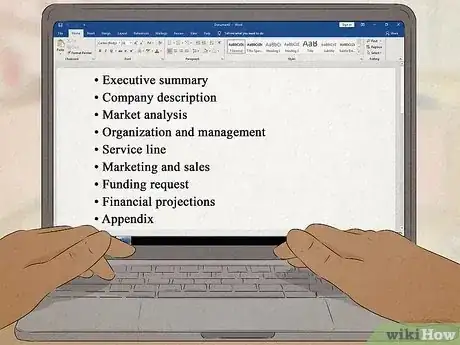

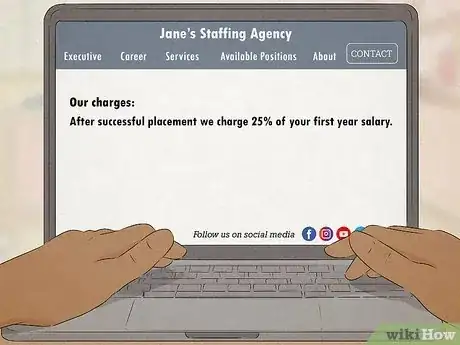
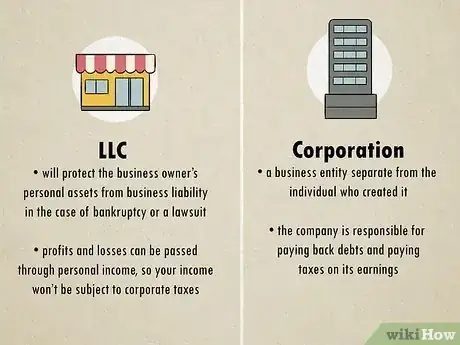


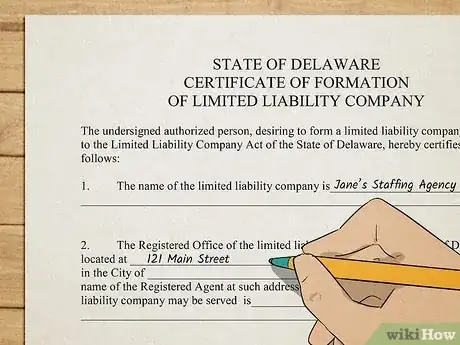
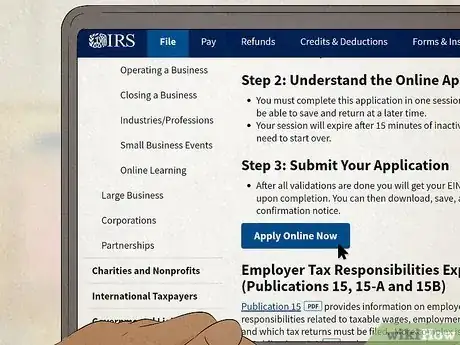





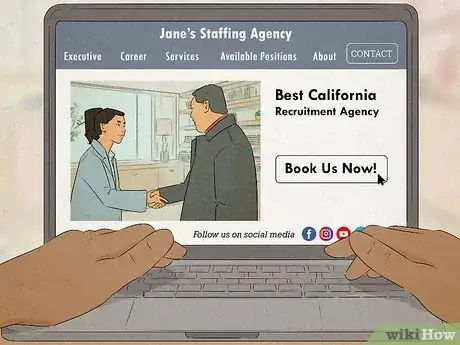
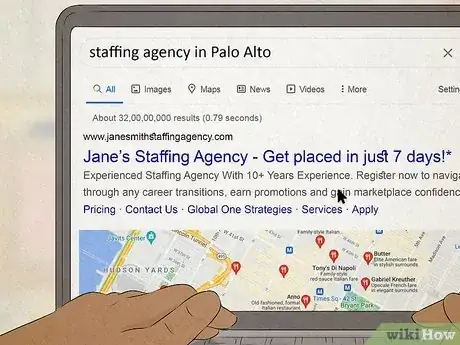









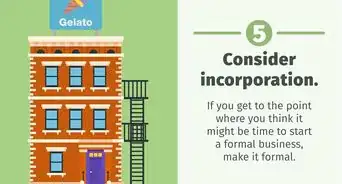


















































wikiHow’s Content Management Team carefully monitors the work from our editorial staff to ensure that each article meets our high quality standards.